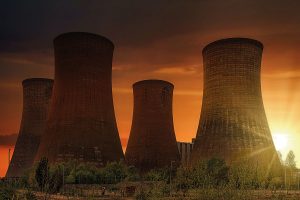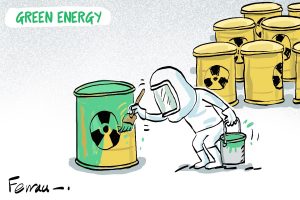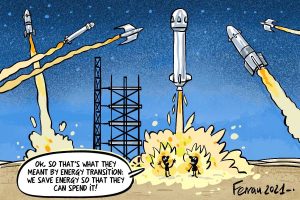Search
Nuclear fusion energy has great advantages. The latest discoveries in this field made by the National Ignition Facility in the United States have great scientific significance.
Global warming lustfully feeds the desires and proposals of those who, as if in a mirage, see nuclear energy as a solution.
The next time you find yourself near a barbecue, try to pay attention to what you see. It is a fascinating scientific process.
This week, the European Commission has declared nuclear energy to be "green energy", together with gas.
Is space tourism compatible with the energy transition? A comic reflection by Ferran Martin and his Eyedropper.
These are just a few examples of how an increase in the generation of energy and food, per se, might not address the needs of the population which is in fact still growing.
Energy is the blood that moves today’s society and is one of the factors that has decisively contributed to improving humanity’s quality of life. This paper addresses the potential challenges and opportunities in the development of global energy systems, emphasising how deeply interconnected the energy and climate debates are.
Adults and older people have most likely always wondered how the young will manage to survive in the world they are left with, and at this point in history, this is a central question in our debates. In order to resolve it, we must resort to one of the main tools we have devised to try to understand the world we live in, the one we call science.
Understanding the nature of the main constituents of the universe is crucial to obtain a precise description of the way in which it reached its present state.
We see the sky and admire its regularity and stability, its apparent immutability. We have always done so; it does not come as a surprise, since humans have always been startled by any change in the sky, associating it with omens or the mood swings of gods. At that time, they might call these changes «new stars», even if they were, for example, a supernova explosion, as in the case of Tycho’s supernova in the sixteenth century.
- 1
- 2










